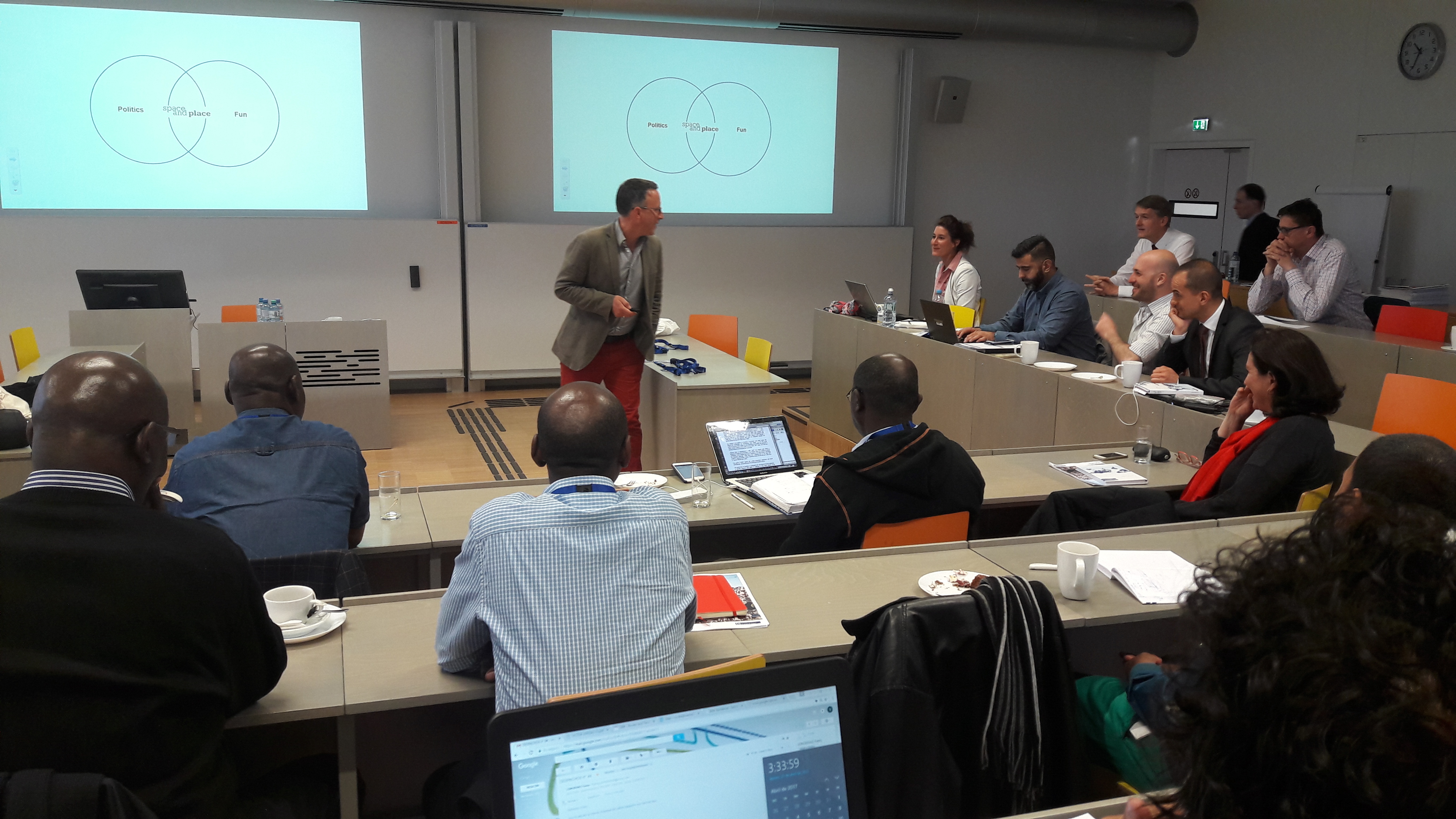The research project
"Vienna in Transition"
(
https://www.vienna-in-transition.org/) is curating a conference in the Sociology Department of Uni Wien. Eugene is invited to speak on alternative participation models, and his role in organising debate and dialogue in public space.
Der
Titel der Konferenz ist "Vienna:
Still a Just City?" und
soll am 06.10.2021 stattfinden.
Es wird ein Buch über das Thema präsentiert
und
– aufgrund
internationaler Gäste – wird
alles auf
Englisch abgehalten werden.
Nach
einer Opening Session, interaktive Workshops zu den vier Themen
Political Participation,
Labour Market, Housing und Environment durchzuführen.
Aufgrund
Deiner
Expertise
und
Erfahrugen möchten
wir Dich
herzlich
dazu einladen im Workshop zu „Political
Participation“ einen kurzen Input zu geben.
Der
Ablauf der Workshop-Sessions gestaltet sich wie folgt:
- Nach
einer kurzen Einführung durch die Session-Moderator*innen
(Yvonne
Franz)
erfolgt
ein kurzer wissenschaftlicher Input durch Forscher*innen des
Projekts
(Byeoung
Ahn),
welcher mit drei der wichtigsten Herausforderungen für Wien
abschließen
wird.
Daraufhin wird es eine Möglichkeit für die
Workshopteilnehmer*innen geben auf die Herausforderungen zu
reagieren (Voting, Kommentare, etc.).
- Im
Anschluss gibt es 3
aufeinanderfolgende Inputs von Wiener
Wissenschaftler*innen/
Verwaltungsakteur*innen/Praktiker*innen
á 5
bis 10
min, die entweder auf die zuvor genannten Herausforderungen
reagieren und/oder neue Herausforderungen beleuchten können.
Details dazu sollen in der weiteren Planung abgesprochen werden.
- Danach
ist eine Gruppendiskussion mit Workshopteilnehmer*innen unter
Einbeziehung weiterer (digitaler) interaktiver
Partizipationsmöglichkeiten geplant.
- Anschließend
werden internationale Wissenschafter*innen die Diskussionen der
Workshops in die Plenary Session tragen und kurz am Podium
präsentieren und diskturieren.
More information about the research project...
Vienna in Transition
The project ‘Vienna in Transition’ aims to enrich the
academic debate about the specificity of the European City Model today,
analysing the social and the policy transformations in a context
traditionally portrayed as highly representative of this model.
Although, the literature acknowledges several new social risks as
challenges to the European City Model, the magnitude of the changes and
their impact is not felt and dealt with in the same way. We will use the
European city framework as a starting point in order to investigate how
Vienna – in a comparative perspective with other European cities –
adapts to recent urban challenges. Despite the fact that Vienna
represents a prime example of a European city under growing pressure, no
systematic and conceptually encompassing research has yet investigated
the role of policies and institutional frameworks in shaping urban
inequalities and social conditions in the city. In order to bring
together the fragmented landscape of existing research and advancing the
state-of-the-art, we specifically identify the following research gaps
to be addressed: The lack of integration of
the multiple dimensions of investigation. Rarely are labor market,
housing and social policies analysis combined and related to the
respective contextual conditions and their transitions. The
lack of integration of the multiple territorial levels within which the
city is embedded. Rarely is the interplay of supranational, national,
regional and local governance dynamics disentangled. A systematic international comparison of Vienna with other European cities is widely missing. Finally,
the project aims at enhancing an integrated urban development policy
approach. More specifically, it will highlight the virtues and the
barriers to multilevel coordination between spatial and sectorial
aspects of key areas of urban policy in order to understand how the
trade-off between neoliberal economic change and the capacity to govern
social and economic transformations plays out in the city. Is it
possible to combine socially inclusive policies, environmental
protection and (socially) innovative initiatives with economic
competitiveness? What preconditions are necessary?
Political Participation
The structural
changes in post-industrial urban transformation have been an
indispensable element of the history of citizen participation in Vienna.
Since the mid-1970s, the longstanding process of the city’s
administrative restructuring has engendered new norms and rules of
participation in urban governance. A series of reforms toward
participatory local governance in Vienna has emerged from multifaceted
forms of consensus-building and dispute-resolution, which have been
initiated by different stakeholders at different stages of the overall
decentralization process. Incorporation of private- and civil society
actors into the governance process has occurred in different social,
economic, and political contexts of the city’s post-Fordist
transformation, which has generated new modes of empowerment and social
inclusion, on the one hand, yet also new dimensions of social exclusion,
on the other hand.
The different degrees
of power within the public-private partnership necessitates a closer
look into the varying trajectories of participation and deliberation in
urban governance, which have facilitated, but also, at the same time,
limited inclusion of the private sphere in the planning- and
decision-making procedure. While formal and informal participatory
platforms for private- and civil society actors have continuously
expanded in the past decades, the organizational structures of both
top-down initiatives and bottom-up mobilizations to foster active
participation have shown bureaucratic inefficiency and structural
inequalities. In addition to the nebulous formulation of non-binding
direct democratic devices, new modes of participation, such as petition;
Local Agenda; and Neighborhood Management, have also exhibited limited
inclusion of disadvantaged social groups. A disproportionate
distribution of participatory opportunities in limited urban areas, such
as in the inner-city districts, for example, exemplifies the spatial
inaccessibility to active participation that derives from the city’s
intra-urban inequalities.
Conference: (Dis-)Continuities of Urban Change in a European City
The conference aims at exploring and discussing the moment of
change confronting local urban governance. It will be a forum for the
discussion of global trends and challenges, which Vienna faced over the
past thirty years. Speakers will elaborate the structural and
institutional particularities of Vienna in the policy fields of labor
market, housing, environment and political participation, and highlight
path dependent processes and moments of change within multilevel
governance arrangements.
Furthermore, the conference provides the opportunity for comparisons
between Vienna and other European cities, and contributes to the
discussion on the growing divergence of the European City Model.
Registration
Registration for this event has not yet opened. If you would like more information, please contact: michael.friesenecker@univie.ac.at
